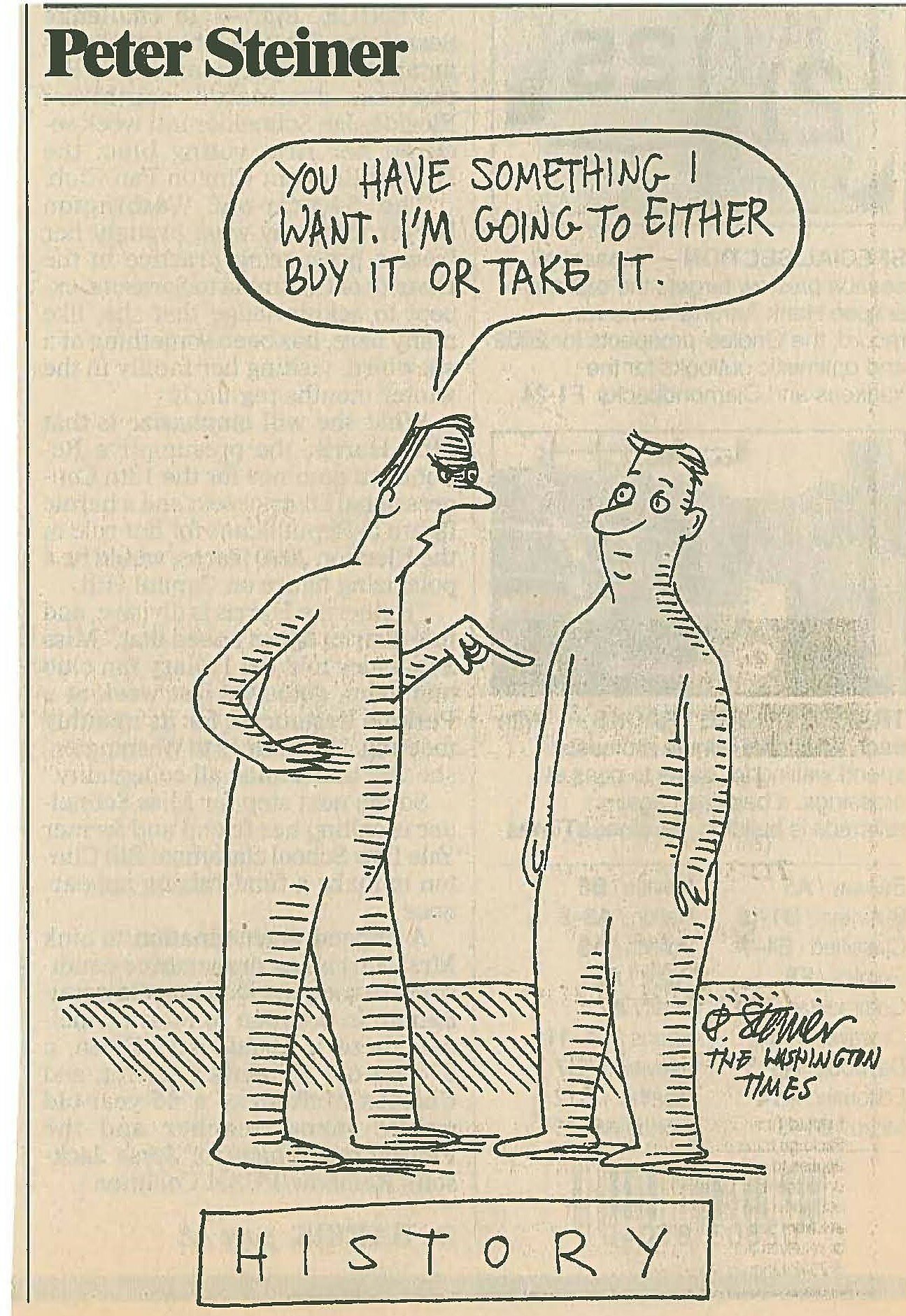In a column on what Jane Jacobs would have thought of the Wall Street protests, Sandy Ikeda quotes a line from her book Systems of Survival:
[W]e have two distinct ways of making a living, no more no less.… First, we’re able to take what we want – simply take, depending of course, on what’s available to be taken. That’s what all other animals do.… But in addition, we human beings are capable of trading – exchanging our services for other goods and services, depending, again, on what’s available, but in this case what’s available for exchange rather than taking. [51–2]
And that reminded me of a cartoon from 2002 that I found last week in moving my office (upstairs to the Cato Institute’s beautiful new seventh floor):
Ikeda goes on to urge the Wall Street protesters to follow Jane Jacobs’s advice:
The “commercial moral syndrome” that underlies free markets and trade counsels: “shun force, come to voluntary agreements, be honest, collaborate easily with strangers and aliens, compete, respect contracts, use initiative and enterprise, be open to inventiveness and novelty, be efficient, promote comfort and convenience, dissent for the sake of the task, invest for productive purposes, be industrious, be thrifty, and be optimistic.”
On the other hand, the “guardian moral syndrome” that underlies government and forced takings counsels: “shun trading, exert prowess, be obedient and disciplined, adhere to tradition, respect hierarchy, adhere to tradition, be loyal, take vengeance, deceive for the sake of the task, make rich use of leisure, be ostentatious, dispense largesse, be exclusive, show fortitude, be fatalistic, and treasure honor.”
Which of these best fits the personality profile of the young, iconoclastic but peaceful, ideologically driven protesters with their iPhones, Twitter, and leaderless organization? Now which of these best fits their enemy?
They really are the two choices that have faced us throughout history. And fortunately, as Deirdre McCloskey and Steven Pinker have pointed out in very different recent books, human life has been enhanced by the fact that people have perceived that making and trading are better than taking.

